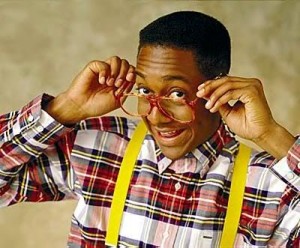Are you sitting down, dear reader? I have something to tell you. It may come as a bit of a shock. I mean … maybe it’s not … it’s probably been obvious that I’m not … umm … “normal.” You probably noticed from the way I talk or the way I dress. I don’t really like sports and I don’t spend much time flirting with cute girls. Lately I tend to hang out with guys (and some girls) who are like me, who share my interests.
Reader, please don’t be mad. Promise you’ll still love me when I tell you this: I’m a nerd.
It seems that our culture has a bit of catching up to do with reality. People of different skin colors and cultures, economic class, sexual orientation, gender or profession are all oppressed by a society that likes to put people in to broad categories and make sweeping generalizations about them. We all are crushed under the heavy weight of stereotypes because we all embrace some. I’ll be honest and say that I have neither the knowledge nor the understanding to try to address many of these stereotypes. However, there is one classification that is rarely talked about but becomes more prevalent every day: nerds.

Nerdiness is everywhere, and it becomes more common every day. Two weeks ago I made a reference to a Patronus in my column and had two people text me that they loved that part. On a larger scale, one of the most in demand and well paid sectors of the economy is computer programming and networking.
Despite what John Hughes’s movies told us in the 80s, it’s better to be a nerd. Think of a wildly successful athlete–say Michael Jordan. Now think of a wildly successful nerd, like Bill Gates. Fun statistic: at the height of his career, it would have taken Jordan four hundred and fifty years saving every penny he made to make as much money as Bill Gates has right now.
Twenty years ago, someone who liked playing video games or read thousands of pages about a wizard war was a nerd with no friends. Nowadays, this description fits most teenagers, but still the stigma against nerds remains.
I once read a really good article about Magic: the Gathering (and yes, I have played and do still play Magic sometimes). It took another article, a pretty generic piece about how gay people feel like they can only “be gay” at gay bars, and replaced all the references to homosexuals and gay culture with “Magic players” and references to “Magic culture.” It is shocking how accurate that article sounded, not just for Magic, but for any nerdy hobby.
Despite its being a smart career move, the prevailing image of a computer programmer is still a small, pasty pale white guy sitting in a dark room in front of a monitor. I know tons of people who work in Tech Services who live up to none of these stereotypes. I also know Magic and League of Legends players who are varsity athletes but don’t really talk about that other hobby of theirs.
These stereotypes don’t do anything beneficial. There is no value in being forced to hide one aspect of myself in order to be accepted. It makes the world more closed—friends and neighbors more unknown. Forcing someone to lie because they have different interests than what society deems “socially acceptable” is not healthy. It conditions us all to lie for fear of repercussion. Americans say they value honesty, but honest people are rarely valued.
At the end of the day, honesty is acceptance. And we can start with the nerds.
Weezer may not be nerdy in hindsight, but they’ve crneaitly become uncool. Come to think of it, me and my nerdy friends all liked Weezer in high school (and all of my nerdy friends in college used to like Weezer when they were in high school), so maybe there is something inherently nerdy about them (or maybe just that it’s appealing to high schoolers).That band is some nerdy fun, but my nerdy music door got blown open when I went to a screening of , a documentary chronicling s 2006 tour. Nerdcore artists make Weird Al (who is interviewed in the film) seem like the Fonz. I maintain, though, that prog may outnerd us all. Did you know that ? Rush fans think that shit is interesting.